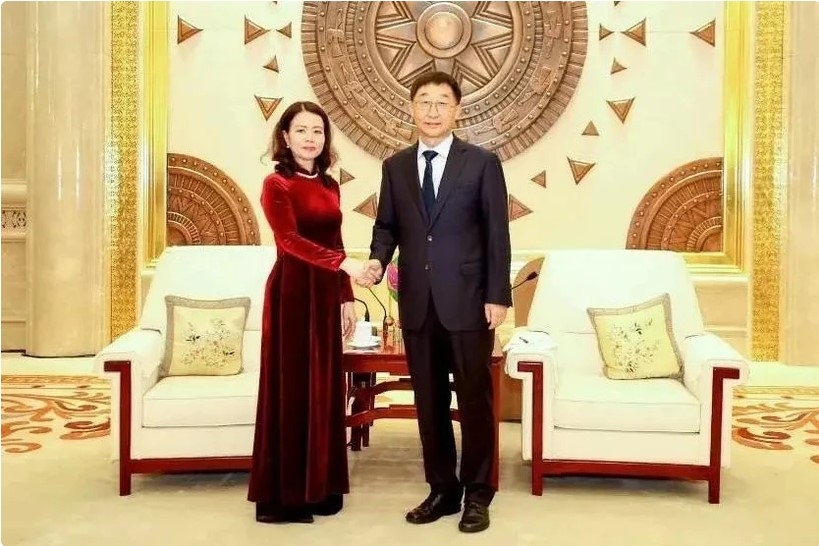Deputy FM visits Guangxi, strengthens Vietnam-China locality-to-locality cooperation
Deputy Minister of Foreign Affairs Nguyen Minh Hang has led a delegation of five Vietnamese localities – Ca Mau, Ninh Thuan, Ninh Binh, Nam Dinh, and Vinh Long— to pay an official visit to China’s Guangxi, as part of the annual cooperation programme between the ministry and the autonomous region that shares a long borderline with Vietnam.

During the trip, from November 20-22, Deputy Minister Hang met with Liu Ning, member of the Communist Party of China (CPC) Central Committee and Secretary of the CPC Committee of the Guangxi Zhuang Autonomous Region, while joining Xu Yongke, member of the Standing Committee of the Party Committee and Vice Chairman of the Guangxi Zhuang Autonomous Region, to co-chair a seminar on enhancing local-level foreign affairs and tourism cooperation between Vietnam and the Chinese region. At the event, Liu conferred the Guangxi honorary citizen title on Vietnamese Consul General in Nanning Do Nam Trung.
In Liuzhou city, the Vietnamese delegation met with the region's vice chairperson and Secretary of the municipal Party Committee Tan Feichuang, and visited the former residence of late Vietnamese President Ho Chi Minh. Additional activities included discussions with officials in Chongzuo and a visit to the cross-border landscape site of Ban Gioc (Vietnam) - Detian (China) Waterfalls. These meetings saw both sides agreeing that the countries’ comprehensive strategic cooperative partnership is thriving, marked by fruitful recent high-level exchanges that have laid the groundwork for strengthened cooperation across all fields.
At the meeting with Liu Ning, Deputy Minister Hang stressed that Vietnam prioritises maintaining stable, sustainable, and long-term relations with China as part of its foreign policy of independence, self-reliance, multilateralism, and diversification.
She suggested stepping up bilateral exchanges in various sectors and mutually beneficial cooperation to deliver tangible benefits for the peoples of both nations. Vietnam will create the best conditions possible for stronger ties between Guangxi and Vietnamese localities, particularly beyond the region’s existing connections with Quang Ninh, Lang Son, Cao Bang, and Ha Giang. Hang urged both sides to increase delegation exchanges, promote people-to-people diplomacy, strengthen transportation links, advance practical trade, tourism, and investment partnerships, optimize the Ban Gioc-Detian Waterfalls site, ensure broader market access for Vietnamese agricultural products in Guangxi and across China, and further work closely in land border management.
In response, Liu pledged to bolster cooperation between Guangxi and Vietnamese provinces, boost people-to-people exchange and trade-investment-tourism collaboration, strengthen transport connectivity, particularly via the standard gauge routes of Lang Son-Hanoi and Mong Cai-Ha Long-Hai Phong, and streamline border gate procedures.
Meeting with Tan in Liuzhou, Hang called for increased investments and tourism expansion between the city and Vietnamese localities. Liuzhou leaders affirmed their commitment to preserving historical sites related to President Ho Chi Minh in the city and organising educational initiatives for Vietnamese and Chinese youth to deepen their understanding of the bilateral ties.


